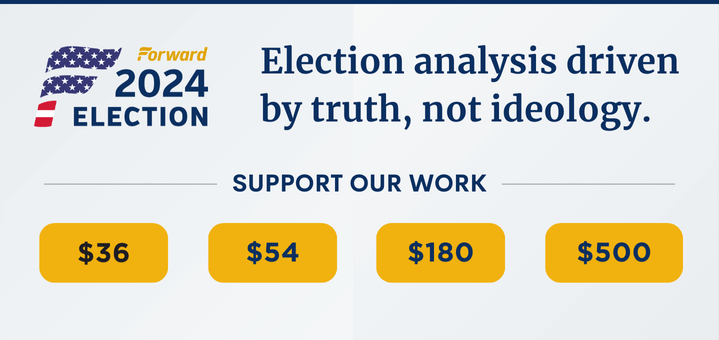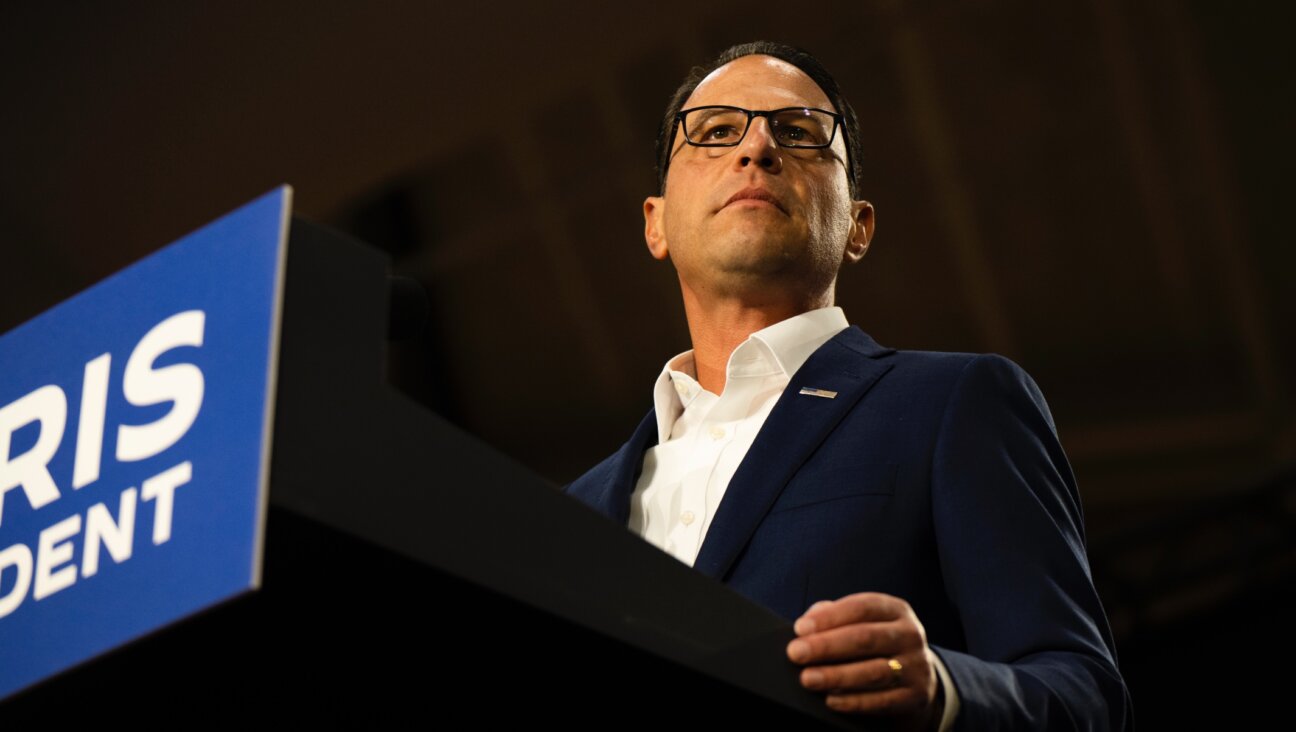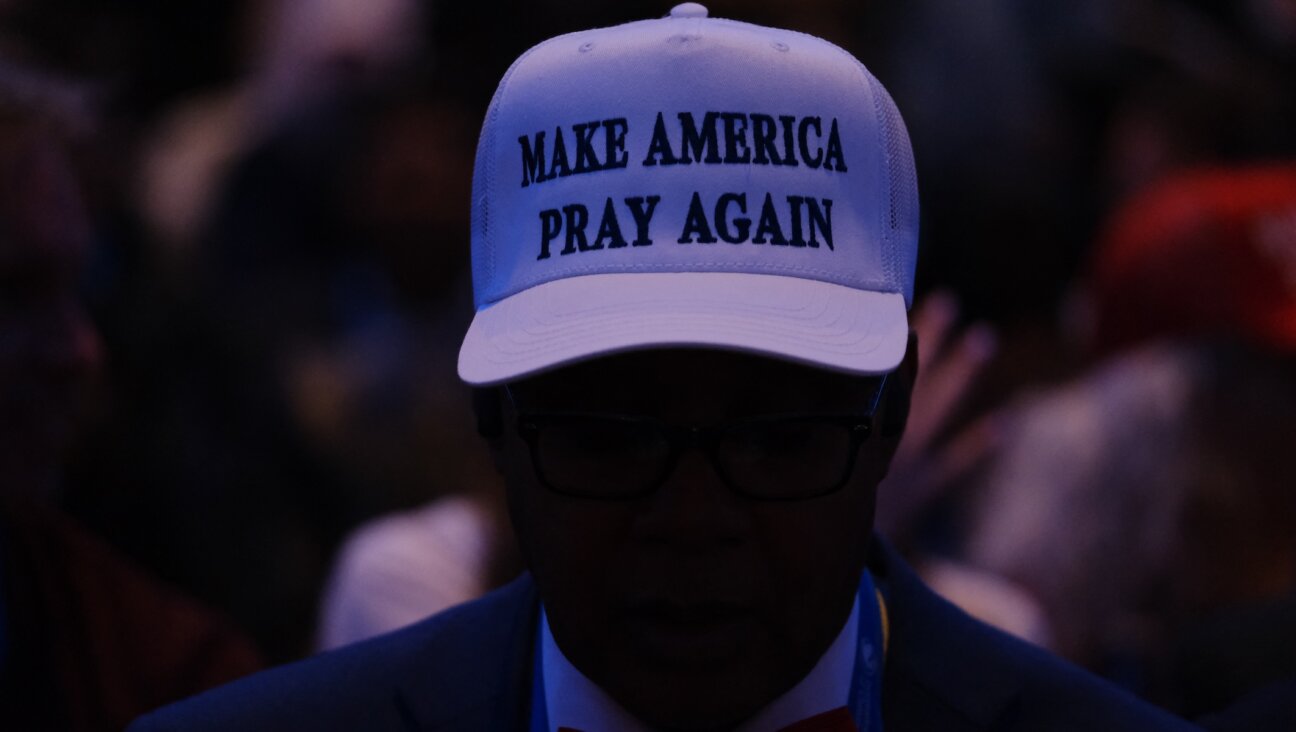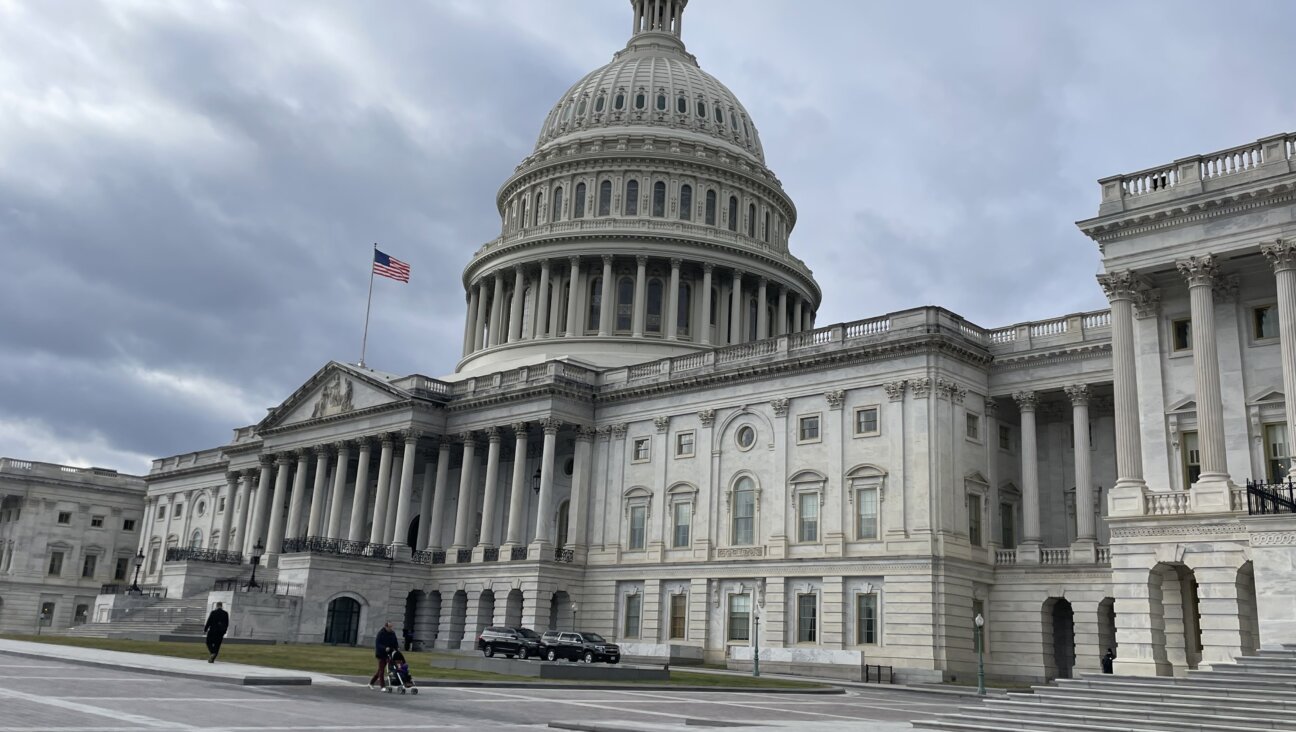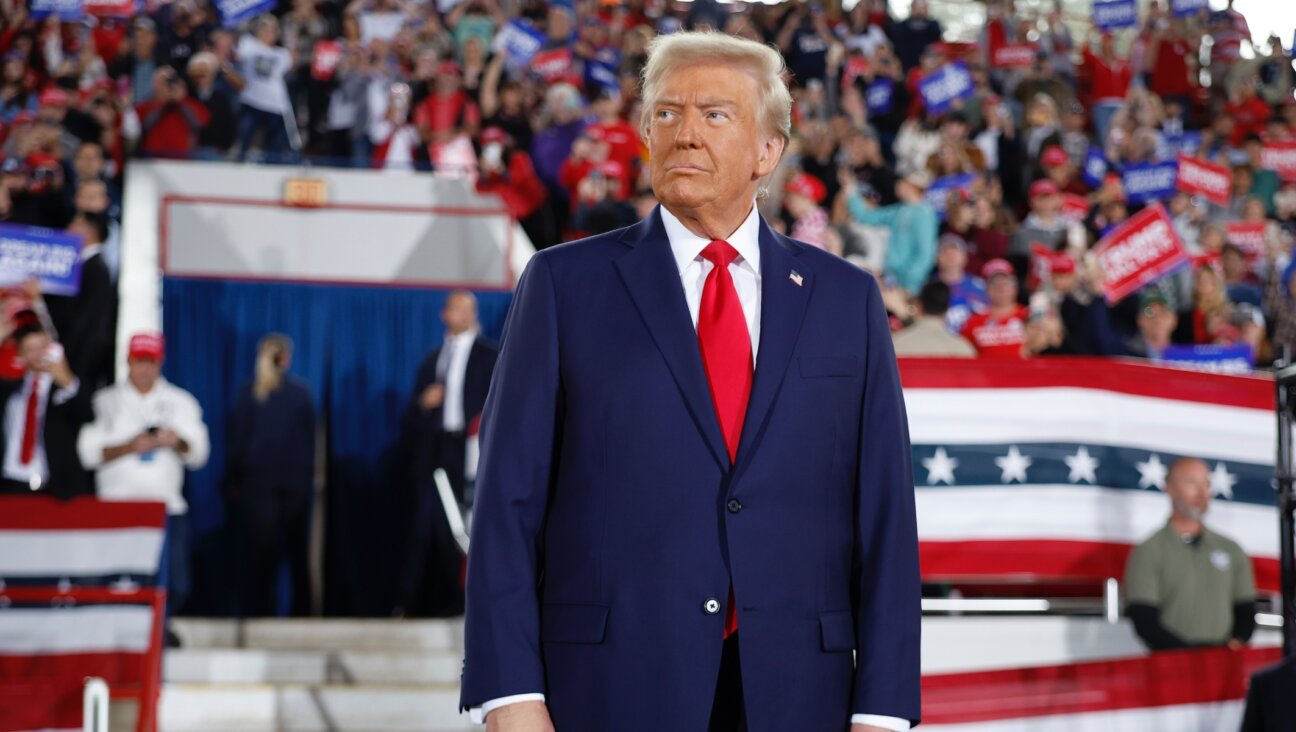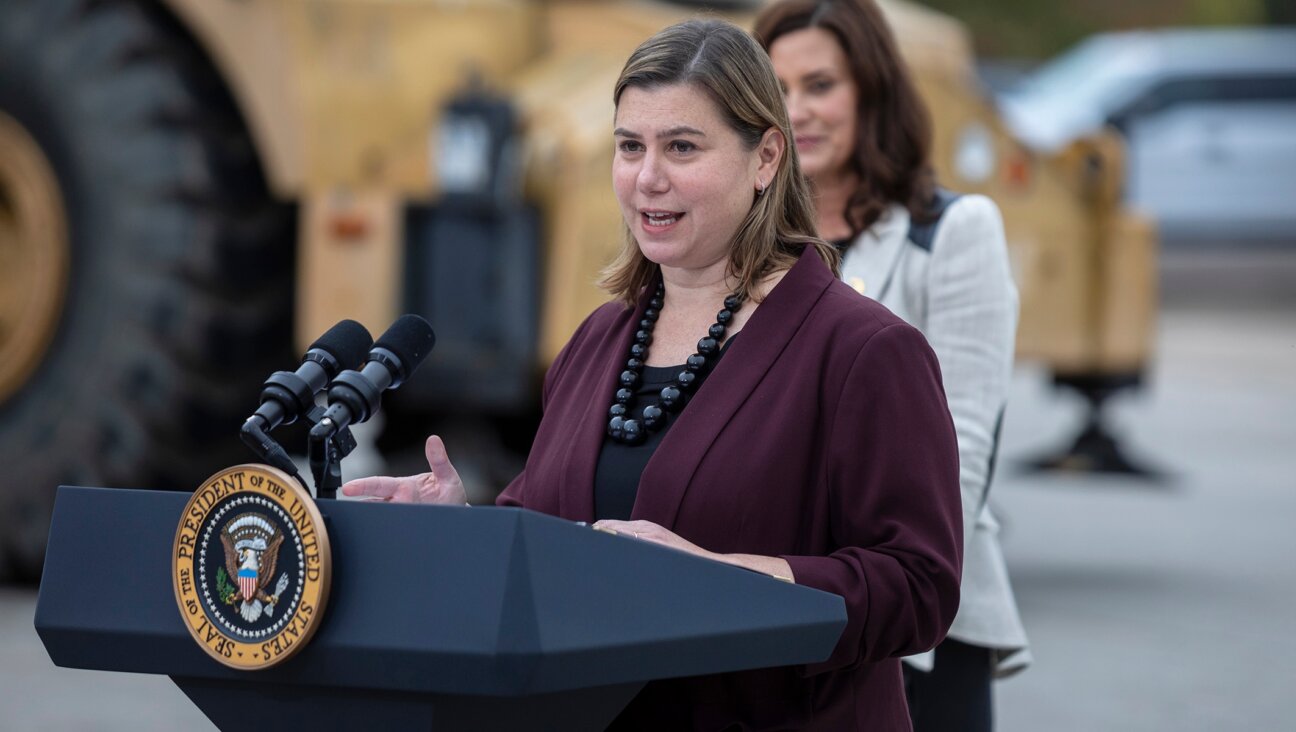Jewish Groups Press for Iran Sanctions
WASHINGTON —As Washington struggles to secure world support for slapping international sanctions on Iran over its alleged pursuit of nuclear weapons, Jewish organization are stepping up their efforts to trigger a crackdown on Tehran.
Pro-Israel activists in Washington are pressing Congress to tighten American sanctions on Iran. And last week, on the margins of the United Nations General Assembly, Jewish communal leaders in New York urged world leaders, including Indian Prime Minister Manmohan Singh, to act against Tehran.
The appeal to Singh — to support American and European efforts to bring the issue of anti-Iran sanctions before the United Nations Security Council — came after a meeting earlier this month between Jewish communal leaders and U.S. Secretary of State Condoleezza Rice. At the meeting, Rice expressed frustration with India’s refusal to support American and European policy on Iran.
Washington is trying to convince India, as well as Russia and China, to join in adopting an international hard line against Iran’s nuclear ambitions. Sources told the Forward that the Jewish activists who met with Rice took her comments as a plea to use their influence with India’s government and urge it to cooperate with the Bush administration.
The assistant national director of the Anti-Defamation League, Kenneth Jacobson, who attended the powwow with Singh, reported that the result of the meeting with the Indian leader was disappointing.
Singh “expressed a reluctance to rush towards the Security Council,” Jacobson told the Forward. “We were left feeling that there was a long way to go before getting his government to be willing to support” referring Iran’s nuclear program to the Security Council.
Jewish communal leaders reported similar disappointment with Russia’s foreign minister, Sergei Lavrov. “We weren’t very happy with him either,” Jacobson said. “He didn’t give us any indication that Russia was going to support” a Security Council resolution for Iran’s nuclear program.
Other meetings that Jewish communal leaders had in New York last week with foreign leaders also focused on Iran’s nuclear ambitions and on the prospects of reining them in through international sanctions.
In his speech before the U.N. General Assembly, Iranian President Mahmoud Ahmadinejad reportedly called for the creation of a committee to investigate Israel’s nuclear activities. He unequivocally affirmed his country’s intention to continue enriching unranium — over American and European objections — although he said the nuclear fuel is being produced for peaceful purposes, not to make a bomb.
The Iranian leader made the statements after effectively breaking off negotiations with European Union representatives aimed at resolving the international crisis over Tehran’s nuclear program.
A referral to the Security Council requires a consensus among board members of the International Atomic Energy Agency. Currently such a consensus does not exist. Russia, China, Brazil and the agency’s director general, Mohamed ElBaradei, all oppose an immediate referral of the Iranian case to the Security Council. The agency’s board of governors is composed of 35 member states, with 14 belonging to the Non-Aligned Movement. These representatives met this week to adopt a collective position. According to reports from the agency’s headquarters in Vienna, 12 out of the 14 nonaligned countries opposed the referral.
The Bush administration and its European allies are rushing to secure an early referral before this month’s election of the organization’s next board. The election is expected to result in the inclusion of even more nonaligned states.
“We think time is running out,” Jacobson said. “We think there is a certain never-never-land quality to all of this. We will wake up one day, and we will find that we’re stuck” with a nuclear Iran.
Meanwhile, pro-Israel lobbyists on Capitol Hill are cajoling members of Congress to support the Iran Freedom Support Act, which would expand the existing American sanctions on companies that invest more than $20 annually in Iran’s oil and gas sectors. The bill would tighten sanctions on companies that invest in Iran’s energy industry in the hopes of blocking money that could be used to produce nuclear arms.
The bill also provides for assistance to pro-democracy forces within Iran, and funding for independent media broadcasts to the country. The House of Representatives’ Ileana Ros-Lehtinen, a Florida Republican, and Howard Berman, a California Democrat, are sponsoring the proposed legislation. The sponsors of the Senate version are Rick Santorum, a Pennsylvania Republican, and Evan Bayh, an Indiana Democrat.
The American Israel Public Affairs Committee, Washington’s pro-Israel lobby, has made pushing for sanctions on Iran its number-one priority in recent months.
“Iran is rapidly approaching the point of no return, and in order to prevent it from acquiring nuclear weapons, concerted diplomatic and economic pressure must be imposed,” Aipac spokesman Josh Block said. “Stopping Iran from acquiring a nuclear weapon should be a priority for anyone who is concerned about stability in the Middle East.”
A message from our CEO & publisher Rachel Fishman Feddersen

I hope you appreciated this article. Before you go, I’d like to ask you to please support the Forward’s award-winning, nonprofit journalism during this critical time.
At a time when other newsrooms are closing or cutting back, the Forward has removed its paywall and invested additional resources to report on the ground from Israel and around the U.S. on the impact of the war, rising antisemitism and polarized discourse..
Readers like you make it all possible. Support our work by becoming a Forward Member and connect with our journalism and your community.
— Rachel Fishman Feddersen, Publisher and CEO






